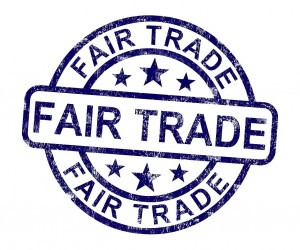 Fair Trade, Organic and Ethical Textile Production
Fair Trade, Organic and Ethical Textile Production
Since the start of the new millennium, our collective conscience has pushed forward notions of Fair Trade and the ‘benefit’ of organic products. Being part of an industry that produces thousands of garments a day this seems a positive step forward. However, as we all know things are rarely that clear cut.
It is easy to become confused by and suspicious of the proliferation of ‘ethical’ claims by manufacturers about textiles, and T-shirts in particular. Eco-friendly, green, sustainable, organic, 100% natural, azo-free, fairly traded, Fairtrade, ethically traded… What does each mean exactly, what difference do they make, and are they legitimate?
What is organic cotton?
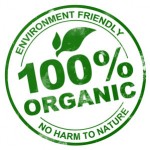 Cotton is grown commercially using a large amount of pesticides and toxic chemicals designed to kill pests, insects, weeds, fungus, or any other kind of living thing. Many problems are associated with this production method, including loss of biodiversity and damage to ecosystems and wildlife, depletion of precious natural resources such as water and soil, and heavy contamination of water bodies.
Cotton is grown commercially using a large amount of pesticides and toxic chemicals designed to kill pests, insects, weeds, fungus, or any other kind of living thing. Many problems are associated with this production method, including loss of biodiversity and damage to ecosystems and wildlife, depletion of precious natural resources such as water and soil, and heavy contamination of water bodies.
However, cotton can be grown following the strict principles of organic agriculture, which uses no synthetic chemical pesticides, no synthetic fertilisers, and no Genetically Modified Organisms (GMOs).
Organic fertilizers (such as manure) and plantbased pest management products (such as neem or garlic extract) are used. The major principle is to restore a natural balance within farms, with healthy and well-structured soils, rich in organic matter.
The organic cotton fibre that is harvested is similar to most conventional cotton fibres, except that it is guaranteed non-GM, and is not contaminated with pesticides. The main difference is that the ecosystem where it has been produced has not been damaged, and chemicals have not poisoned the farmer and his or her family.
The certification of cotton fibre as an organic agricultural product is extremely reliable. If the label of your T-shirt claims that it has been made with organic cotton, you can be confident that the cotton fibre has really been grown organically. However, the word ‘organic’ only refers to a guarantee on the growing stage of the cotton fibre, and not on the processing or the manufacturing, and there is still a long way from the fibre to a T-shirt.
Fibre processing
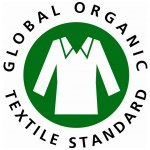 There are many stages required to process cotton from fibres to fabrics, including cleaning, combing, spinning, weaving, dyeing or bleaching. All these stages require a large number of chemicals of various toxicity and hazards. Some of these chemicals threaten the health of workers, while others cause environmental pollution from the mills’ waste water. Finally, many of these chemicals are found as residues in the finished product, and some of them may affect the health of consumers, and are suspected to cause allergies, eczema, and even cancers.
There are many stages required to process cotton from fibres to fabrics, including cleaning, combing, spinning, weaving, dyeing or bleaching. All these stages require a large number of chemicals of various toxicity and hazards. Some of these chemicals threaten the health of workers, while others cause environmental pollution from the mills’ waste water. Finally, many of these chemicals are found as residues in the finished product, and some of them may affect the health of consumers, and are suspected to cause allergies, eczema, and even cancers.
In order to address those processing and manufacturing stages, a handful of organisations, mostly organic certification agencies, have developed their own private voluntary ‘organic’ or ‘sustainable’ standards for textiles, and are certifying finished products according to those standards.
And so, what we commonly call in Europe an ‘organic T-shirt’ is a T-shirt made with certified organic cotton fibre, and processed according to those textile processing standards. The certification agency then authorises the manufacturer to add its logo (or mark, or symbol) on the T-shirt’s label or their marketing literature. This is essential in order to recognise an organic T-shirt.
While the processing and manufacturing are not really ’organic’ in a similar way that agricultural products are ‘organic’, what those standards aim to achieve is to maintain the integrity of the organic nature of the fibre as much as possible. This is achieved by using as much organic material as possible, and by adopting alternative chemicals and processing practices that minimise the impact on the environment, and protect the health of consumers, while insuring textiles of high quality that are economically viable.
The Oeko-Tex Standard 100 Mark
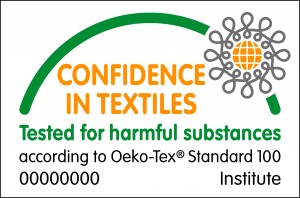 Other standards exist to address the health and environmental issues of textiles, although they don’t require the cotton fibre to be organic. The Oeko-Tex Standard 100 Mark (or Öko-Tex) is probably the most widely recognised standard in textiles. It sets strict limits on the amount of substances harmful to consumers which can be found in the finished textile product. The mark states ‘Confidence in Textiles’ and is displayed on textile products that have been tested by one of the member institutes.
Other standards exist to address the health and environmental issues of textiles, although they don’t require the cotton fibre to be organic. The Oeko-Tex Standard 100 Mark (or Öko-Tex) is probably the most widely recognised standard in textiles. It sets strict limits on the amount of substances harmful to consumers which can be found in the finished textile product. The mark states ‘Confidence in Textiles’ and is displayed on textile products that have been tested by one of the member institutes.
Although Oeko-Tex standards only specifically address consumers’ health issues, the necessity to comply with the criteria induces better environmental practices at the processing and manufacturing level, so the standards offer significant environmental benefits.
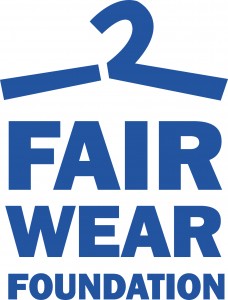 Another widely recognised standard is the European Eco-Label for Textile Products, which covers the whole supply chain from the fibre to the finished products. However, the criteria do not require the cotton fibre to be organic, and are often less stringent thatn Oeko-Tex standards with respect to consumers’ health.
Another widely recognised standard is the European Eco-Label for Textile Products, which covers the whole supply chain from the fibre to the finished products. However, the criteria do not require the cotton fibre to be organic, and are often less stringent thatn Oeko-Tex standards with respect to consumers’ health.
Some companies go further, and open up their manufacturing processes and business practices to scrutiny by organisations set up to promote fair labour conditions such as the Fair Wear Foundation (FWF), which exists to promote fair labour conditions in the garment industry world wide.
Fair Trade
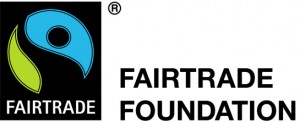 Fair Trade is a worldwide movement, which aims to ensure that producers in developing countries receive a fair price for their work, benefit from acceptable working conditions, and improve their livelihood. In contrast to organic agriculture, there are no public regulations for Fair Trade, and the Fair Trade movement is not formally unified.
Fair Trade is a worldwide movement, which aims to ensure that producers in developing countries receive a fair price for their work, benefit from acceptable working conditions, and improve their livelihood. In contrast to organic agriculture, there are no public regulations for Fair Trade, and the Fair Trade movement is not formally unified.
The Fairtrade standards for cotton include environmental criteria, which mostly require farmers to work toward best environmental practices, and encourage them to convert to organic agriculture. However, Fairtrade certified cotton is not necessarily organic.
With respect to the rest of the supply chain (spinning, cut and sew, etc.) Fairtrade only guarantees that minimum social and environmental standards are met; the law of the particular country requires these minimum standards are met in any case.
WRAP
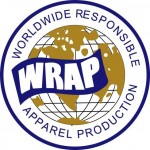 The Worldwide Responsible Accredited Production (WRAP) program is the world’s largest facility certification program mainly focused on the apparel, footwear and sewn products sectors. Facilities receive a certification of six months to one year based on compliance with the 12 WRAP Principles.
The Worldwide Responsible Accredited Production (WRAP) program is the world’s largest facility certification program mainly focused on the apparel, footwear and sewn products sectors. Facilities receive a certification of six months to one year based on compliance with the 12 WRAP Principles.
The WRAP Principles are based on generally accepted international workplace standards, local laws and workplace regulations which encompass human resources management, health and safety, environmental practices, and legal compliance including import/export and customs compliance and security standards.
WRAP has adopted a management systems approach toward compliance which requires that senior management adopt the WRAP principles in writing, assign the necessary staff to ensure the required practices are implemented throughout the facility, and that an internal audit system is in place to ensure continuous compliance. Facilities must undergo a rigorous self-assessment and then be audited by an independent third-party monitoring company.
WRAP enjoys wide support from the global apparel industry but is, at the same time, independent of the industry. Active support is provided by the International Apparel Federation and more than 20 additional trade and industry associations from around the world.
WRAP certifies facilities, not brands or businesses. WRAP is a non-profit, non-governmental organization and has a Board of Directors that is independent of any industry group. It is not a membership organization. Over the years, WRAP’s comprehensive factory-based model helped it grow into the world’s largest certification program for the apparel industry – 1,850 factories from around 60 countries participated in the program and over 1,400 certificates were issued in 2009 alone. Today, WRAP’s facility certification program is expanding even further, moving beyond just apparel to include all labor-intensive sectors, such as hotels, jewelry, furniture, construction, food, home furnishing, cutlery, glassware, carpet / rugs, lamps and more.
The 12 WRAP Princilpes are as follows:
- Compliance with Laws and Workplace Regulations. Facilities will comply with laws and regulations in all locations where they conduct business.
- Prohibition of Forced Labor. Facilities will not use involuntary or forced labor.
- Prohibition of Child Labor. Facilities will not hire any employee under the age of 14 or under the minimum age established by law for employment, whichever is greater, or any employee whose employment would interfere with compulsory schooling.
- Prohibition of Harassment or Abuse. Facilities will provide a work environment free of supervisory or co-worker harassment or abuse, and free of corporal punishment in any form.
- Compensation and Benefits. Facilities will pay at least the minimum total compensation required by local law, including all mandated wages, allowances & benefits.
- Hours of Work. Hours worked each day, and days worked each week, shall not exceed the limitations of the country’s law. Facilities will provide at least one day off in every seven-day period, except as required to meet urgent business needs.
- Prohibition of Discrimination. Facilities will employ, pay, promote, and terminate workers on the basis of their ability to do the job, rather than on the basis of personal characteristics or beliefs.
- Health and Safety. Facilities will provide a safe and healthy work environment. Where residential housing is provided for workers, facilities will provide safe and healthy housing.
- Freedom of Association and Collective Bargaining. Facilities will recognize and respect the right of employees to exercise their lawful rights of free association and collective bargaining.
- Environment. Facilities will comply with environmental rules, regulations and standards applicable to their operations, and will observe environmentally conscious practices in all locations where they operate.
- Customs. Compliance Facilities will comply with applicable customs laws, and in particular, will establish and maintain programs to comply with customs laws regarding illegal transshipment of finished products.
- Security. Facilities will maintain facility security procedures to guard against the introduction of non-manifested cargo into outbound shipments (i.e. drugs, explosives biohazards and /or other contraband).
Manufacturer Policies
The Ethical Policy provided by a manufacturer will often provide information on not only the working conditions, pay and freedoms of association for their factory workers, but will often contain information on the manufacturers policy on environmental impact. Further re-enforcement is then given to the Ethical policy through membership of independent organisations dedicated to the promotion and certification of lawful, humane and ethical manufacturing such as WRAP (Worldwide Responsible Apparel Production) and FLA (Fair Labor Association). Statements taken from some of our suppliers’ policies are as follows:

Beechfield Brands is firmly committed to maintaining industry leading quality standards with innovative and dependable products.
Beechfield define and grow brands through rigorous application of quality standards and principles, to provide customers with consistently excellent service and value. These standards cover all aspects of the supply chain, from suppliers through to distribution.
As part of this process they respect and understand the local laws in the respect of wages, health and safety, child labour and human rights. Field based staff carry out full audits to ensure that the factories they use are compliant with the applicable local standards.
Suppliers undergo strict assessment, covering ethical policy, through ability to meet the product quality and service standards required by Beechfield Brands. Beechfield have established partnerships with a dedicated manufacturing base, thus ensuring consistency of quality and supply.
Every product is labelled to allow full traceability throughout the supply chain.
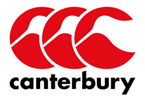
Committed to providing a healthy, safe and fair workplace for all employees and to this end it is their intention to only work with reputable suppliers, manufacturers and their agents who are likewise committed to the philosophy.
Suppliers must observe and fully apply local laws or regulations on employment protection matters such as minimum wages, equal pay, hours of work and overtime.
Suppliers must not employ children where to do so would disadvantage their education or development.
Suppliers must manage all waste that they generate in accordance with the local laws or in such a way to avoid harm to the environment or to the local population.
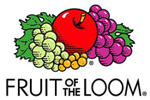
FOTL (Fruit of the Loom) strives to implement and enforce the highest environmental and ethical standards through its global operations. The company has its own detailed Code of Conduct which is integral to its business. The Code of Conduct is based on current best practice with regard to employment, health and safety and the environment.
FOTL requires that all workers receive salaries that are at or above the local minimum wage and are highly competitive. The minimum age for employees at FOTL plants is 18 years and refuses to work with any factories that employ under age workers or forced labour. All FOTL products have had Oeko-Tex 100 approval since 1998, certifying that they contain no substances that may be harmful to humans or the environment.

Gildan firmly believe in labour practices that not only comply with the laws in effect but also correspond to industry best practices. In 2006 the Company updated its code of conduct to reflect, in a single code, compliance with Fair Labour Association (please visit fairlabor.org for further information) and Worldwide Responsible Apparel Product (WRAP) standard, as well as corporate social responsibility best practices in effect throughout the industry.
Gildan renewed, for the third consecutive year, its Oeko-Tex Standard 100 Certification.
In 2006, to further enhance environmental, health and safety practices, Gildan developed an environmental management system (EMS) plan that will be implemented company-wide during 2007 and 2008. In 2004 Gildan adopted sustainable environmental practices by creating a highly efficient biological wastewater treatment system (biotope) that is being used at its textiles facilities in Honduras and the Dominican Republic.
Gildan is also presently working on a new project, the salt recovery system, which consists of recycling the salt from the wastewater and reusing it in the dyeing process. This new system, tested in 2007 and scheduled for implementation in 2008, will complement the biotope system.
For the Comprehensive Corporate Social Responsibility policy report please visit www.gildan.com

Hanes Brands Inc. (HBI) believes in doing business with those suppliers, manufacturers, contractors, joint venture partners, agents, distributors, and consultants who embrace and demonstrate high standards of ethical business behaviour.
Suppliers will not employ individuals in violation of the local mandatory school age, or under the legal employment age in each country where they operate.
Suppliers will not discriminate based on personal characteristics or beliefs.
Hanes is committed to protecting the quality of the environment around the world through sound environmental management. HBI will meet or exceed applicable environmental laws and regulations and seeks to reduce waste and minimise the environmental impact of their operations.
Hanes strives to continuously improve environmental performance through resource conservation, waste minimisation, water and energy efficiency and effective use of raw materials. Hanes will measure environmental performance and work to promote environmentally friendly practices.

All manufacturing locations are inspected regularly by local representatives ensuring that working conditions are to the very highest standard and that working hours do not exceed local government criteria with no child or enforced labour. Henbury are also working with local charities to give back to the countries who have given them so much support throughout the years.
Henbury do not permit factories to employ staff below the age of 16, which is the international employment standard. Henbury do not work with factories that use any form of forced labour, including prison labour.
Supplier factories are visited and inspected regularly by a Henbury representative. The issues of working hours, forced overtime, heating and ventilation, health and safety are examined.

Kustom Kit adopts a rigorous selection process for garment manufacturers ensuring only those that are totally committed to exceeding high ethical standards become appointed suppliers.
Children must not be employed below the legal minimum age required by the law of the individual country.
Employees are to be paid no less than the legal minimum wage as required by the law of the individual country.
Working hours must not exceed those set out by local legislation and overtime must be voluntary and not compulsory.
Manufacturers are frequently inspected and recorded upon by local independent agents.
Kustom Kit is also dedicated to protecting the environment and purposely seeks out suppliers who take positive action to minimise both waste and the impact of their manufacturing processes on the surrounding environment.

In 2005 Mantis launched it’s ‘Tender Loving Clothing™’ (TLC) range; the aim being to take a positive step towards more sustainable production.
Ethical trading and respect for human rights are core company values. By developing long term partnerships with suppliers their intention is to promote internationally recognised ethical standards, to uphold local legislative standards and remain sympathetic to local cultures. Through building trading relationships, supporting local livelihoods and demanding appropriate ethical standards Regatta aims to achieve the highest ethical standards without imposing unachievable conditions.

Regatta has an ethical trading code which is communicated to all suppliers these include:
Child Labour No children younger than the minimum age established by law or under an age interfering with compulsory schooling shall be employed.
Working Hours The hours worked shall not exceed the maximum legal limits each day or per week.
Remuneration Wages must be at least the minimum required by local law, including allowances and benefits.
Good ethics are at the heart of the Regatta business. They are proud and fond of the brand they have created. Customers and other people connected with the Company have expectations of Regatta and they are clear in their obligations to endeavour to protect the values that we all share. We are part of a wider community, from those who enjoy the great outdoors at leisure to those who benefit from the livelihood the Regatta business provides. Regatta cannot control every aspect of life in the world but can use what influence they have to make a difference.

Result requires all garments bearing its name to be manufactured under conditions which adhere to strict standards on working hours and good working conditions including factory temperature.
Result requires all suppliers to employ based on equal opportunity and non-racist policies.
Does not permit the employment of workers under the minimum age established by local law or below the compulsory school going age.
Actively encourages all suppliers to pursue correct environmental practices including the recycling of waste materials and the re-circulation of waste heat generated in the dying process.

Russell Europe complies with Oeko-Tex and WRAP continually working to become one of the first major clothing companies to have its factories fully accredited for the new Worldwide Responsible Apparel Production standard.
By ensuring its compliance with stringent ethical standards such as Oeko-Tex and WRAP Russell is able to give customers confidence that practices like child labour, unfair work conditions and environmental pollution are not used in the production of any of their garments.

Goods must have been produced:
Lawfully through fair and honest dealing.
Without exploiting the people who made them.
In decent working conditions.
Reducing the environmental impact during production and transportation.
Wombat does not condone the use of child labour and suppliers must not employ children, other than under the ILO convention 138 and Recommendation 146 which defines a child as a person younger than 15 years old.
Wombat does support legitimate, legally sanctioned apprentices and educated-related work as long as the child is not being exploited, there is no risk to the child’s health, education and development, and you have the permission of the child’s parents.
